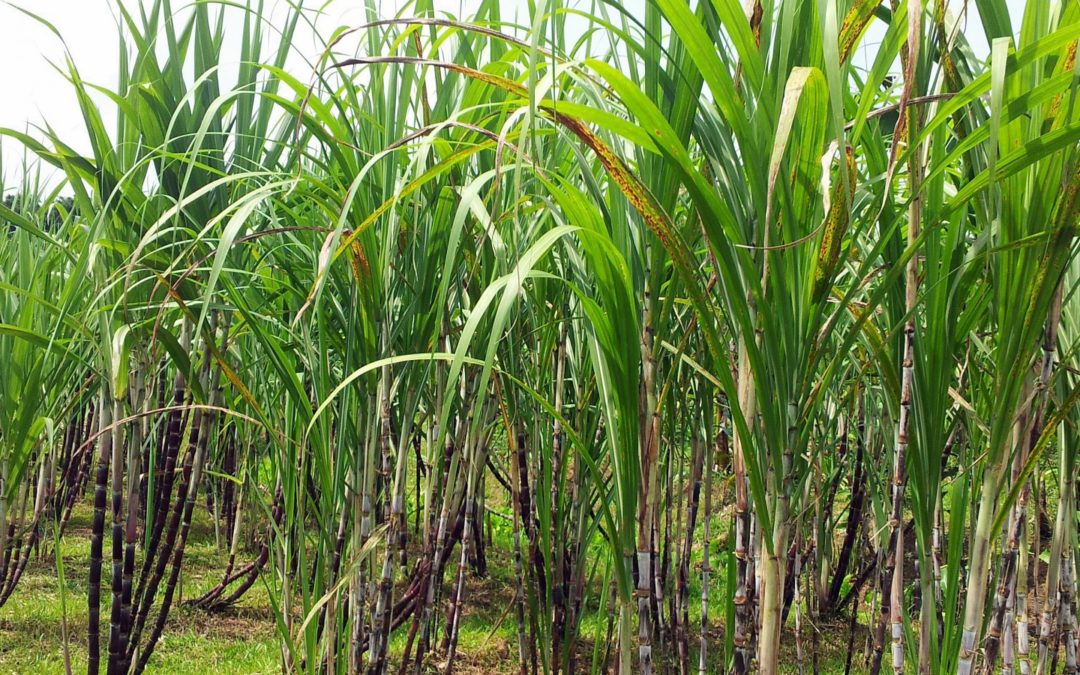The Role of Sugar and Cane in Creating Flavored Syrups and Sweeteners
The Role of Sugar and Cane in Creating Flavored Syrups and Sweeteners
Blog Article
Why Cane Sugar Processing Chemicals Are Critical for Modern Sugar Refining
The role of cane sugar processing chemicals in contemporary sugar refining can not be overemphasized, as they are important to improving both the efficiency of extraction and the total quality of the end product. Representatives such as phosphoric acid and details flocculants are employed to eliminate contaminations, resulting in sugar that not only satisfies customer assumptions however likewise follows industry criteria. Nevertheless, the effects of these chemicals extend beyond high quality, touching upon market characteristics and ecological considerations. This increases vital questions regarding the sustainability of such methods and their influence on the future of sugar manufacturing.
Role of Processing Chemicals
The effectiveness of walking cane sugar handling pivots significantly on the tactical application of processing chemicals. These chemicals play a crucial duty in boosting the performance and top quality of sugar removal and refining. From the preliminary phases of juice extraction to the final filtration actions, handling chemicals promote various critical procedures.
In the removal phase, chemicals such as phosphoric acid and calcium hydroxide are employed to optimize the information process, aiding to remove pollutants and put on hold solids from the walking stick juice. This not only enhances the yield however additionally makes sure the clarity of the last item. In addition, representatives like flocculants aid in the rapid settling of contaminations, thereby improving the overall procedure.
Triggered carbon and ion exchange materials serve to remove color and odor, making sure that the refined sugar satisfies consumer quality standards. Thus, the thorough option and application of these chemicals are essential for accomplishing ideal end results in cane sugar processing.
Trick Types of Chemicals
Walking cane sugar processing depends on a selection of key chemicals that help with each phase of production. These chemicals play crucial roles in clearing up, whitening, and detoxifying the sugar extracted from cane.
One main classification of chemicals consists of flocculants, such as polyacrylamide, which aid in the information process by promoting the aggregation and settling of contaminations. Additionally, calcium hydroxide is frequently utilized to reduce the effects of acidity and aid in the removal of non-sugar components.
Bleaching agents, such as activated carbon and sulfur dioxide, are made use of to decolorize the syrup, causing a more clear end product. These chemicals help get rid of shade compounds that may affect the sugar's look and bankability.
Furthermore, phosphoric acid acts as a pH regulator throughout the handling phases, guaranteeing ideal conditions for the chemical activities involved in sugar extraction and filtration.
Various other vital representatives include edta (ethylenediaminetetraacetic acid), which chelates steel ions that might catalyze undesirable responses, and salt hydroxide, which helps in pH control throughout the refining procedure. Jointly, these chemicals enhance efficiency and guarantee a high-grade walking cane sugar product.
Benefits for Sugar Quality
Usually overlooked, the usage of particular handling chemicals considerably improves the overall top quality of cane sugar. These chemicals play a crucial function in refining processes, guaranteeing that the last product fulfills strict industry criteria for purity and preference.

Furthermore, processing chemicals assist in accomplishing a constant granulation and structure, Visit This Link which are essential for customer acceptance. By managing the crystallization process, these chemicals ensure that the he said sugar crystals form evenly, bring about a much more attractive product that liquifies well in numerous applications.
Additionally, making use of these chemicals can enhance the service life of cane sugar by lessening wetness absorption and microbial growth. In general, the tactical application of handling chemicals is crucial for delivering high-quality walking cane sugar that satisfies consumer assumptions and sector needs.
Environmental Influence Factors To Consider

In addition, the energy-intensive nature of sugar refining, compounded by chemical this contact form usage, commonly causes increased carbon discharges. This adds to environment adjustment and raises concerns relating to the sustainability of current refining techniques. Furthermore, the sourcing of these chemicals may involve practices that endanger biodiversity, such as monoculture farming, which reduces the resilience of farming ecosystems.

To alleviate these effects, sugar refiners are significantly discovering lasting options and adopting finest practices that minimize chemical use. Applying extensive environmental administration systems can assist guarantee that the refining process aligns with ecological criteria and advertises biodiversity. Eventually, a balanced strategy that focuses on both sugar quality and environmental stewardship is vital for the long-term viability of the sugar sector.
Future Patterns in Refining
As the sugar market faces the environmental challenges related to standard refining methods, cutting-edge strategies are emerging to boost both effectiveness and sustainability. One significant trend is the adoption of environment-friendly chemistry concepts, which prioritize making use of non-toxic, eco-friendly handling chemicals. This shift not just minimizes ecological impact however also addresses customer demand for cleaner manufacturing approaches.
One more appealing advancement is the execution of advanced purification technologies, such as membrane layer separation and adsorption procedures. These techniques improve the quality and quality of the sugar while reducing the volume of wastewater produced during refining. Additionally, the integration of electronic technologies, consisting of IoT and AI, is transforming functional efficiency by making it possible for real-time monitoring and predictive upkeep, thus reducing source waste.
In addition, making use of spin-offs from sugar refining, such as bagasse and molasses, is obtaining traction. These materials can be transformed right into biofuels or value-added products, adding to a round economy within the market. Collectively, these fads signify a change towards more sustainable methods that not just boost functional efficiency but likewise straighten with global sustainability goals, making sure the future stability of sugar refining.
Verdict
Walking cane sugar processing chemicals are necessary in modern-day sugar refining, significantly improving the effectiveness and quality of sugar extraction. The tactical use of these chemicals not only improves the pureness and flavor of the final product but also guarantees constant crystallization and texture. As the industry increasingly prioritizes sustainability, the adoption of environmentally-friendly handling agents is likely to form future fads in refining, inevitably causing better products and extended life span for customers.

Inevitably, a well balanced strategy that prioritizes both sugar high quality and ecological stewardship is crucial for the long-term feasibility of the sugar sector.
Walking cane sugar processing chemicals are necessary in modern-day sugar refining, considerably boosting the efficiency and high quality of sugar removal.
Report this page